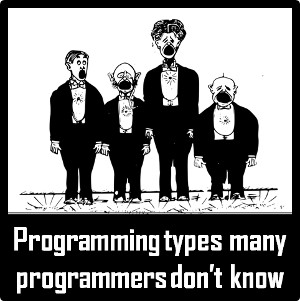Top 7 Skills a Professional IT Specialist Needs

In July 2006, when Facebook was only two years old, Mark Zuckerberg got an offer from Yahoo: they wanted to buy Facebook for $1 billion. Zuckerberg did not even think about accepting the offer. This story teaches us a lesson: an IT specialist has to be a visionary. You start project that have huge potential and you don't give up on them when you see signs of landing a good deal. Most people would take the billion bucks. Zuckerberg knew better; he is a visionary.
To get better at solving the problems your projects run into, the first thing you need is technical expertise. You're already an educated IT professional, so you know how to diagnose technical problems and develop proper solutions. Sometimes the problem calls for a fresh software system that will carry the burden of company growth.
However, you need something more than technical expertise for developing problem-solving skills:
- Stress resistance. These things will happen. If you don't keep your head cool, you won't solve the problems as fast as you could.
- Communication and outsourcing skills. You will not work alone on big projects. You need to listen to the feedback and suggestions from your team, and you'll need to assign the right task to the right people.
You acquire a great deal of data on a daily basis. Throughout your education and experience, you learned how to analyze it so that it will help you come up with the best action plan. This is a skill you will need to keep developing if you want to become a true expert in this profession.
- Play brain games. Lumosity takes only few minutes per day, but it helps you improve your brain's functions.
- Solve few math problems every day. You need math in your profession, but don't focus only on the kind of math you need. Challenge yourself with new problems and practice some freestyle math to boost your analytical thinking skills.
This is a skill that many IT specialists underestimate. They think they can easily solve their lack of writing skills by hiring professional writers from AustralianWritings and similar online services. However, the truth is that you will mostly communicate in written, and the way you write your messages speaks a lot about your level of professionalism and expertise.
There are few methods that will help you get better at writing:
- Practice every day. In addition to all email messages you write, take the time to write an entry about anything in Penzu - a private online diary.
- Write an IT blog. Seriously. You have a great deal of knowledge and experience to share with the community. A blog will not only help you get recognized as a great professional in the niche, but will also help you boost your writing skills.
- Cut the slang. It's easy to get used to the IT slang, since you're using it every day. However, it's not doing you any good when you're communicating with clients and the audience. Use Hemingway App to simplify your style, so that people understand what you're trying to say.
When criticism is constructive, you will only benefit from it. The crucial element of success is understanding what your clients and audience need. They will not always like your work. They will have suggestions they want you to consider. It is important to understand where the criticism comes from, and it's even more important to realize when you need to respond by making changes in your work.
- Tame your ego. Recognize the patterns of your thoughts. When you catch yourself thinking "Oh what do they know? I'm the best, this is great work!" - cut that thought. Think: can you meet the requirements of your audience or clients? Can you make some changes that would make the product better in their eyes?
Constructive criticism is different from a personal attack. Some people will not like you as a person, no matter how great your work is. You know how many people hate Zuckerberg, Dorsey, Gates, and other big names in the IT world, right?
Well, when you become one of the greatest IT specialists alive, people will hate you for no reason. Have you seen some of these great names complaining about that? No; and you shouldn't complain either.They did not teach you this at college, did they? The status of a professional IT specialist is mostly earned through knowledge, expertise, creativity, and authority. However, all these personal characteristic can have a corrupting influence on your personality. When IT experts allow their status to turn them into arrogant persons, they lose touch with reality.
Don't underestimate the power of integrity, positive approach, determination, humility, and self-discipline. Even when your projects achieve huge success, keep reminding yourself how it all started. You wanted to change the world through your work. You wanted to make people's lives better. That's the motto that should keep you going.

 Jessica
Jessica






